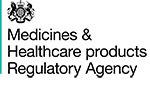It’s crucial to understand whether your product should be categorised as a food or supplement, so you get the labelling, legals and marketing right. The challenge when asking ‘what are food supplements’ is that the regulations are strongly influenced by case law, making it sometimes unclear and complex.
What is a medicine, and why are medicinal claims restricted?
 A medicine or medicinal product is any substance or combination of substances presented as having properties for treating or preventing disease in human beings. Essentially, it’s all about fixing something in the mind or body. Trading Standards and the Medicines and Healthcare products Regulatory Agency (MHRA) control, regulate and restrict medicines as, understandably, they can be addictive and harmful if not used correctly. Most food products will not be classed as medicines nor medicinal (see food section below).
A medicine or medicinal product is any substance or combination of substances presented as having properties for treating or preventing disease in human beings. Essentially, it’s all about fixing something in the mind or body. Trading Standards and the Medicines and Healthcare products Regulatory Agency (MHRA) control, regulate and restrict medicines as, understandably, they can be addictive and harmful if not used correctly. Most food products will not be classed as medicines nor medicinal (see food section below).
What are food supplements, and how are they regulated?
What makes a product a supplement? Supplements fill nutritional gaps with meaningful amounts of vitamins, minerals and nutrients. They’re meant to be reasonably harmless as they provide longer-term results, unlike medicines which can be very fast-acting. Supplements add to a consumer’s regular diet and offer a helpful, rather than a ‘fixing’, effect in that they can correct some nutritional deficiencies.
Supplements are regulated by the Food Standards Agency (FSA) and require FBO registration in the UK. It’s important to note that some ingredients are only approved for use in supplements and not in regular food products.
Labelling food supplements
Supplements require additional labelling. Like food, they must list ingredients and common allergens. Unlike food, they must outline conditions for use around daily dosage and warnings and a statement that food supplements should not be used as a substitute for a varied diet. It’s important to state that supplements are ‘food supplements’ not ‘dietary supplements’.
Brexit also influences further labelling changes. For example, food supplements produced in the UK can no longer be labelled as being of EU origin or carry the EU flag. Other Brexit changes include:
- Food supplements sold in Northern Ireland must include a NI or EU address for the food business
- From 1st October 2022, food supplements sold in GB must include a UK, Channel Islands or the Isle of Man address for the food business
Labelling info should be visible and attached – either directly printed on the packaging, a label attached to the packaging, or a label clearly visible through the packaging.
A quick word on VAT
Although vitamins and trace elements are an essential part of human nutritional requirements, they aren’t food in themselves for VAT purposes. Therefore, vitamin and mineral supplements are standard-rated across different forms.
Why fortify your product?
Fortifying your product with a dose of a specific vitamin or mineral (or even multiple micronutrients) can be beneficial to consumers and help you stand out in the market. Done right, it can boost your profit margin and meet consumers’ ever-more discerning desires. It’s also likely to impact how consumers and retailers view your product, changing where you’re placed and who you’re competing with.
Finally, where does food fit in?
Arguably, food will not fix ailments, but it has macronutrients (such as fats, carbs, proteins), which give us energy and plenty of micronutrients if eaten in balance. Like supplements, food is regulated under the FSA and requires Food Business Operator registration in the UK.
The MHRA outlines that food includes “any food, drink or food supplement that is part of the diet. Any ingested product which is not a medicinal product is a “food”, including articles and substances of no nutritional value.” Food law includes a prohibition on claims to treat, prevent or cure disease.
